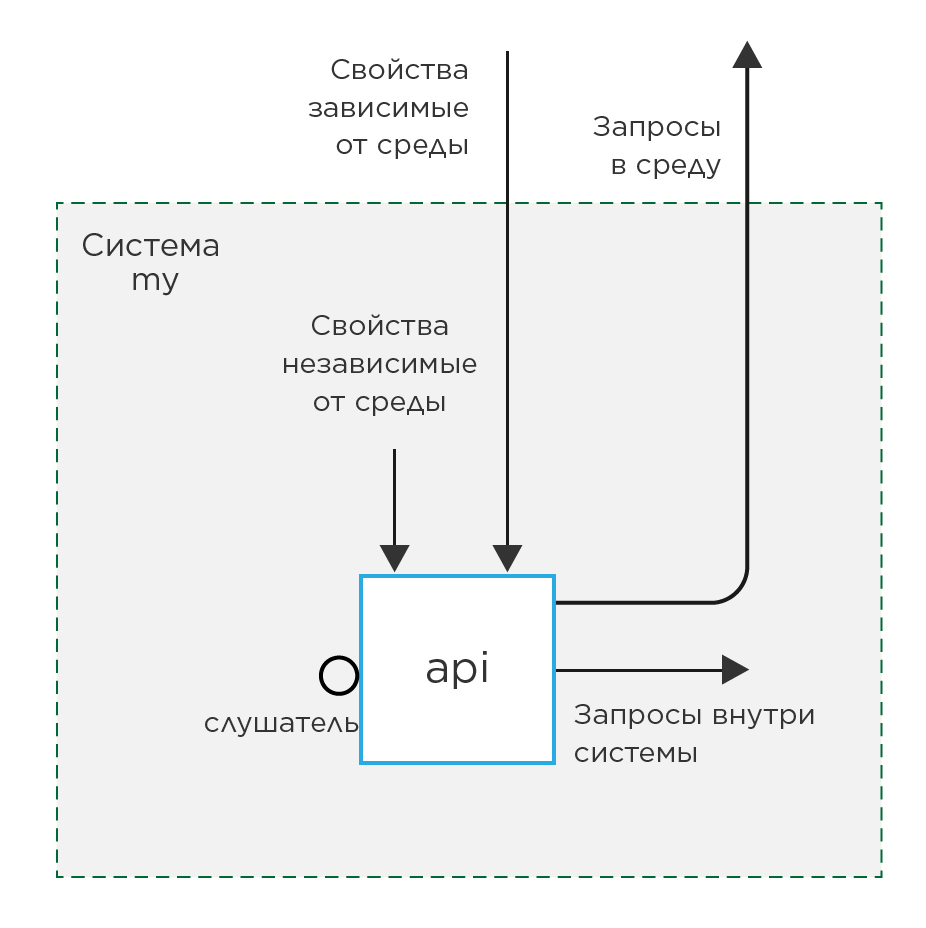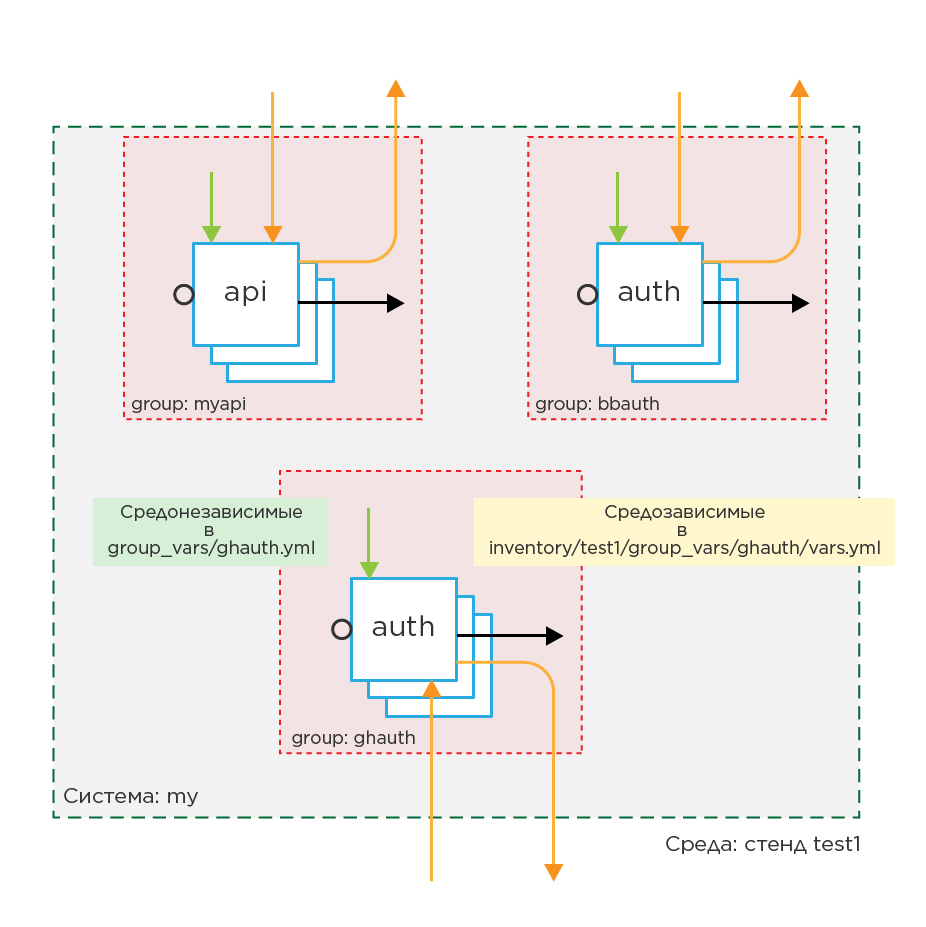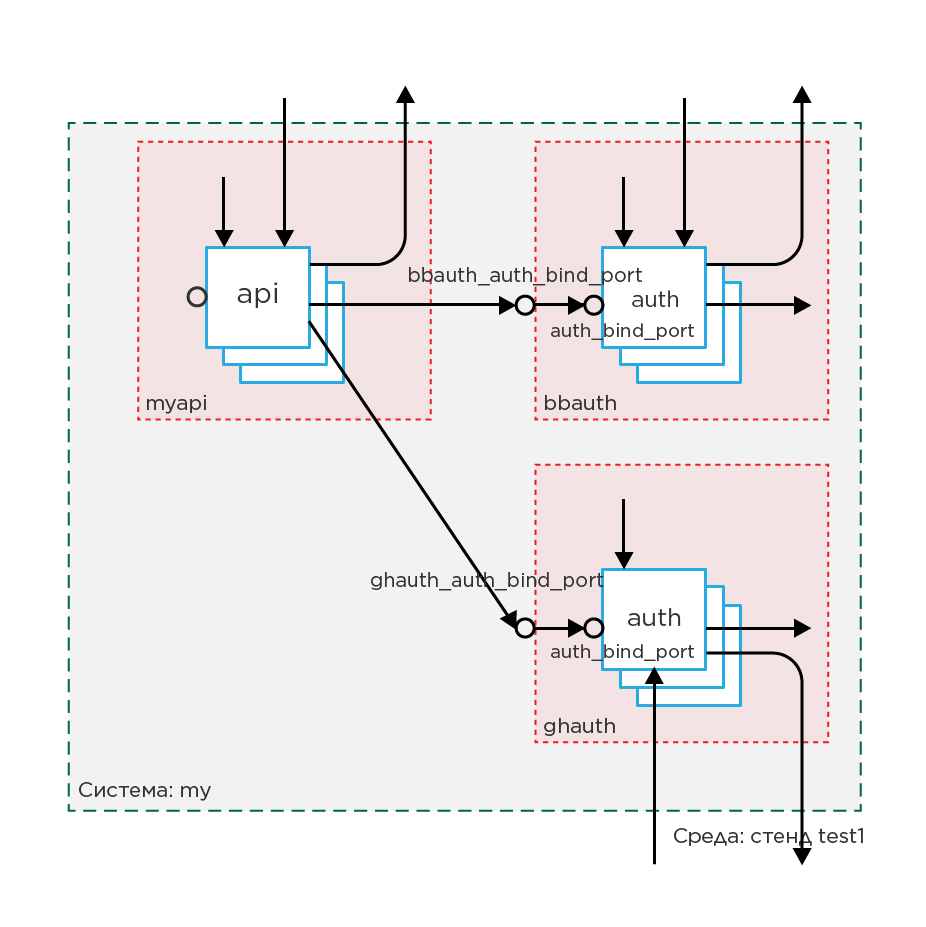ansible devops codestyle
Hallo! Mein Name ist Denis Kalyuzhny und ich arbeite als Ingenieur in der Abteilung für Entwicklungsprozessautomatisierung. Täglich werden neue Builds von Apps auf Hunderten von Kampagnenservern eingeführt. In diesem Artikel teile ich meine Erfahrungen mit der Verwendung von Ansible für diese Zwecke.
Dieses Handbuch bietet eine Möglichkeit, Variablen in einer Bereitstellung zu organisieren. Dieses Handbuch richtet sich an Personen, die bereits Rollen in ihren Playbooks verwenden und BestPractices lesen , jedoch ähnliche Probleme haben:
- Nachdem im Code eine Variable gefunden wurde, ist es unmöglich, sofort zu verstehen, wofür sie verantwortlich ist.
- Es gibt mehrere Rollen, und Variablen müssen an denselben Wert gebunden sein, aber nichts funktioniert.
- Es ist schwierig, anderen zu erklären, wie die Logik von Variablen in Ihren Spielbüchern funktioniert
Wir sind auf diese Probleme bei Projekten in unserem Unternehmen gestoßen, wodurch wir zu den Regeln für die Gestaltung von Variablen in unseren Spielbüchern gekommen sind, die diese Probleme teilweise gelöst haben.

Variablen in Rollen
Eine Rolle ist ein separates Objekt des Bereitstellungssystems. Wie jedes Systemobjekt muss es eine Schnittstelle für die Interaktion mit dem Rest des Systems haben. Die Rollenvariablen sind eine solche Schnittstelle.
, , api, Java . ?

2 :
1.
a)
)
2.
a)
)
)
— , .
— , , , .
— , , .
, 1, 2, 2 — , (, ..) defaults . 1. 2. 'example' , .
Code style
- . , .
- , , .
. Ansible .
:
myrole_user: login: admin password: admin
login — , password — .
,
. . :
myrole_user_login: admin myrole_user_password: admin
( ), , . , : git . , — , . .
, , : .
mydeploy #
├── deploy.yml #
├── group_vars #
│ ├── all.yml #
│ └── myapi.yml # myapi
└── inventories #
└── prod # prod
├── prod.ini #
└── group_vars #
└── myapi #
├── vars.yml # myapi
└── vault.yml # ( ) *, , . , , . , , , .
, , .
, .
, , SSL , SSL . , , .
1, 2 Java , .

, :
- hosts: myapi
roles:
- api
- hosts: bbauth
roles:
- auth
- hosts: ghauth
roles:
- auth, group_vars , . , . . : .
Code Style
- host_vars , , , : " ?", .
, , ?
, .
:
hostvars[groups['bbauth'][0]]['auth_bind_port'],
. -, . -, . -, , .
.
— , , .
group_vars/all/vars , .
.
:

, , :
# roles/api/defaults:
#
api_auth1_address: "http://example.com:80"
api_auth2_address: "http://example2.com:80"
# roles/auth/defaults:
#
auth_bind_port: "20000" group_vars/all/vars , :
# group_vars/all/vars
bbauth_auth_bind_port: "20000"
ghauth_auth_bind_port: "30000"
# group_vars/bbauth/vars
auth_bind_port: "{{ bbauth_auth_bind_port }}"
# group_vars/ghauth/vars
auth_bind_port: "{{ ghauth_auth_bind_port }}"
# group_vars/myapi/vars
api_auth1_address: "http://{{ bbauth_auth_service_name }}:{{ bbauth_auth_bind_port }}"
api_auth2_address: "http://{{ ghauth_auth_service_name }}:{{ ghauth_auth_bind_port }}", , , , .
Code Style
- , , , , .
, .
SSL-.
. .
, api_ssl_key_file: "/path/to/file".
, , ,
group_vars/myapi/vars , ' '.
files/prod/certs/myapi.key, :
api_ssl_key_file: "prod/certs/myapi.key". , , . , .
. , , . . .
group_vars, .
:
mydeploy #
├── deploy.yml #
├── files #
│ ├── prod # prod
│ │ └── certs #
│ │ └── myapi.key #
│ └── test1 # test1
├── group_vars #
│ ├── all.yml #
│ ├── myapi.yml # myapi
│ ├── bbauth.yml #
│ └── ghauth.yml #
└── inventories #
├── prod # prod
│ ├── group_vars #
│ │ ├── myapi #
│ │ │ ├── vars.yml # myapi
│ │ │ └── vault.yml # ( )
│ │ ├── bbauth #
│ │ │ ├── vars.yml #
│ │ │ └── vault.yml #
│ │ └── ghauth #
│ │ ├── vars.yml #
│ │ └── vault.yml #
│ └── prod.ini # prod
└── test # test
├── group_vars #
│ ├── myapi #
│ │ ├── vars.yml #
│ │ └── vault.yml #
│ ├── bbauth #
│ │ ├── vars.yml #
│ │ └── vault.yml #
│ └── ghauth #
│ ├── vars.yml #
│ └── vault.yml #
├── test1.ini # test1 test
└── test2.ini # test2 test: . , . , , , .
, , . .
. , .